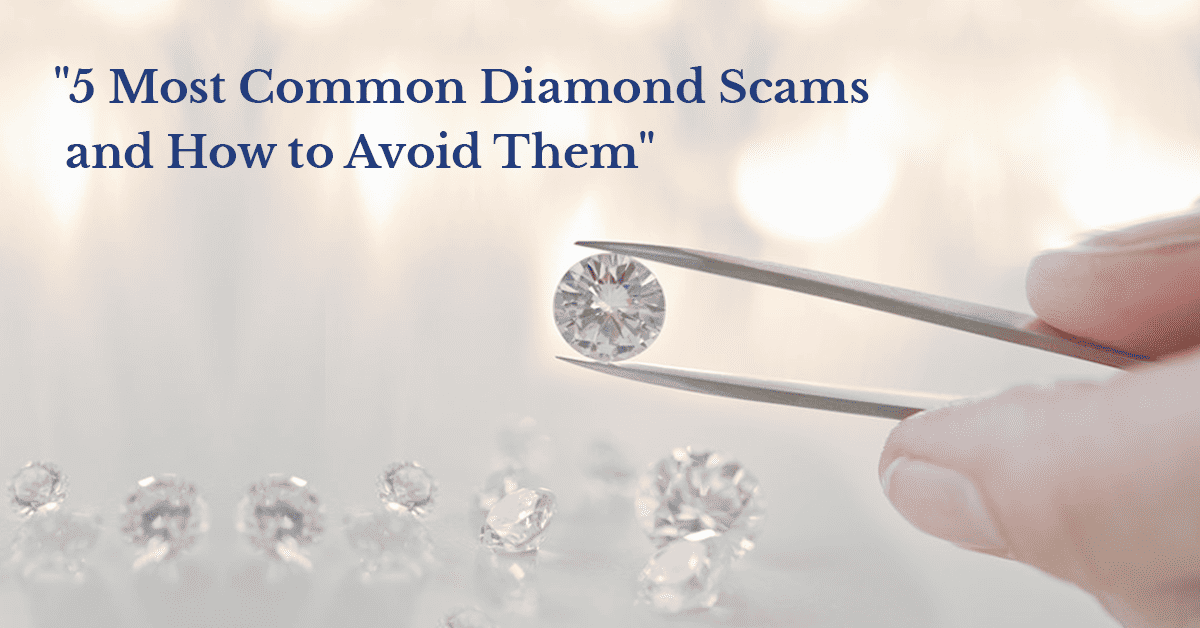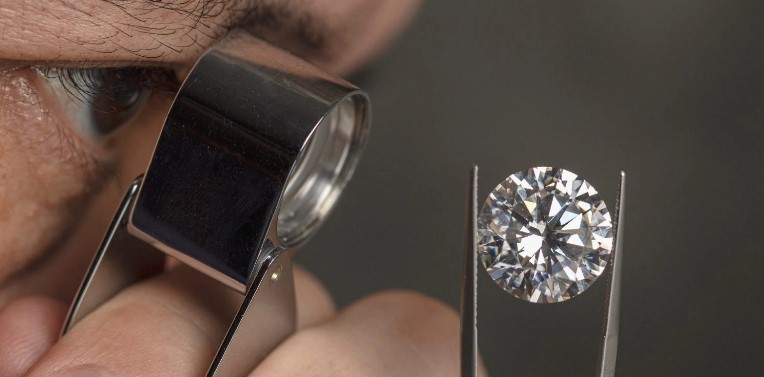Diamond Buying 101 | How to Avoid Getting Scammed?
Purchasing a diamond is an exciting investment that symbolizes love, commitment, and luxury. However, the diamond industry can be complex and filled with potential pitfalls. To ensure you make a secure and well-informed purchase, let’s delve into Diamonds 101, explore the five most common diamond scams, and discover effective strategies to safeguard yourself from these scams.
Diamonds 101: Understanding the Basics
Before diving into the intricacies of avoiding scams, it’s essential to grasp the fundamental aspects of diamonds. Familiarize yourself with the “Four Cs”:
Carat Weight: The size of the diamond, measured in carats.
Color: The lack of color is preferable, with a color grading scale from D (colorless) to Z (light yellow or brown).
Clarity: Refers to the presence of internal or external imperfections, with a scale ranging from Flawless (no imperfections) to Included (visible imperfections).
Cut: The quality of the diamond’s cut, impacting its brilliance and fire. Optimal cuts maximize these qualities.
Equipped with this basic knowledge, you’ll have a foundation for assessing diamonds and protecting yourself from potential scams.
The 5 Most Common Diamond Scams

Misleading Certification: Some unscrupulous sellers may provide falsified or vague diamond certifications. Insist on reputable grading reports from established gemological laboratories such as GIA (Gemological Institute of America) or AGS (American Gem Society).
Inflated Carat Weight: Beware of diamonds with hidden flaws or inclusions that artificially boost their carat weight without significantly affecting their appearance. Always verify the diamond’s clarity and ensure the size matches its carat weight.
Bait-and-Switch Tactics: Dishonest sellers may show you a high-quality diamond but then attempt to switch it with a lower-quality stone during the purchase process. Always examine the diamond you intend to buy under proper lighting conditions and with a loupe to confirm its identity.
Overpriced and Inflated Valuations: Be cautious if the price seems too good to be true, especially if the seller claims the diamond’s value is much higher than the market average. Compare prices from different reputable sources to ensure you’re getting a fair deal.
Unscrupulous Appraisals: Some sellers might provide you with an appraisal that overvalues the diamond to make the purchase seem like a fantastic deal. To ensure the appraisal is unbiased, consider getting a second opinion from an independent appraiser.
How to Avoid Diamond Scams
Buy from Reputable Jewelers: Opt for established and trusted jewelers with positive reviews, a transparent buying process, and a solid reputation. Research the jeweler’s background and customer feedback before making a purchase.
Request Certified Diamonds: Always insist on diamonds with reputable grading reports from independent and recognized gemological laboratories, such as GIA or AGS. These certifications ensure the diamond’s authenticity and quality.
Educate Yourself: Continuously expand your knowledge about diamonds. Learn how to identify the Four Cs, understand diamond prices, and recognize potential red flags.
Inspect the Diamond: Examine the diamond under proper lighting conditions and with a magnifying loupe. Confirm the diamond’s identity, clarity, and cut quality.

Seek Independent Appraisals: If you’re unsure about the value of the diamond, consider getting an independent appraisal from a qualified gemologist. This unbiased assessment can help validate the diamond’s worth.
The Importance of Ethics and Transparency
In addition to protecting yourself from scams, it’s essential to prioritize ethics and transparency when purchasing a diamond. Consider the following aspects to ensure your diamond purchase aligns with your values:
Conflict-Free Diamonds: Ensure your diamond comes from legitimate sources that adhere to the Kimberley Process, an international certification system aimed at preventing the trade of conflict diamonds (also known as blood diamonds) that fund armed conflict.
Ethical Practices: Choose jewelers that support ethical mining and responsible sourcing. Some jewelers go above and beyond by promoting fair labor practices, environmentally sustainable mining, and giving back to local communities.
Transparency in Pricing: Look for jewelers who provide clear and transparent pricing. This includes detailing the costs associated with the diamond’s cut, color, clarity, and carat weight. Avoid hidden fees or deceptive pricing tactics.
Certification Verification: Ensure the diamond’s certification matches the one provided by the jeweler. This helps confirm the diamond’s authenticity and eliminates the risk of receiving a diamond that doesn’t meet your specifications.
Ask Questions: Don’t hesitate to ask the jeweler about the diamond’s origin, ethical practices, and any concerns you may have. A reputable jeweler should be willing to address your questions openly and honestly.
Beyond the Diamond: Creating Lasting Memories
While the diamond itself holds immense value, it’s essential to recognize that the true significance of your purchase extends beyond the gemstone. It’s the memories you create, the love you celebrate, and the journey you embark on with your partner. Here are some additional considerations to enhance your diamond purchase:
Customization: Many reputable jewelers offer customization options, allowing you to create a unique piece that perfectly matches your partner’s style and preferences. Whether it’s selecting a specific setting, designing a bespoke piece, or adding personal touches, customization adds sentimental value to the diamond.
Education for Your Partner: If your partner isn’t familiar with diamonds, consider sharing your newfound knowledge. Explaining the meaning of the Four Cs, the importance of a reputable certification, and the care involved in choosing a diamond will make the gift even more meaningful.
Proposal Planning: If you’re planning a proposal, think about the setting, the moment, and the significance of the event. Whether it’s a romantic sunset on the beach, a cozy intimate dinner, or a meaningful location that holds sentimental value, the proposal becomes an unforgettable part of the diamond’s story.
Conclusion
Choosing the perfect diamond is a significant milestone, and arming yourself with knowledge about diamonds, common scams, and ethical considerations empowers you to make a purchase that aligns with your desires and values. By understanding Diamonds 101, recognizing the most common scams, and prioritizing ethics and transparency, you’ll not only safeguard yourself from potential pitfalls but also contribute to a more responsible and sustainable diamond industry.
Remember, your diamond should not only be a symbol of love and commitment but also a reflection of the responsible and thoughtful choices you make as a consumer. With the right precautions and a commitment to ethical standards, your diamond purchase becomes more than a beautiful gem; it becomes a meaningful and impactful decision that you can cherish for a lifetime.